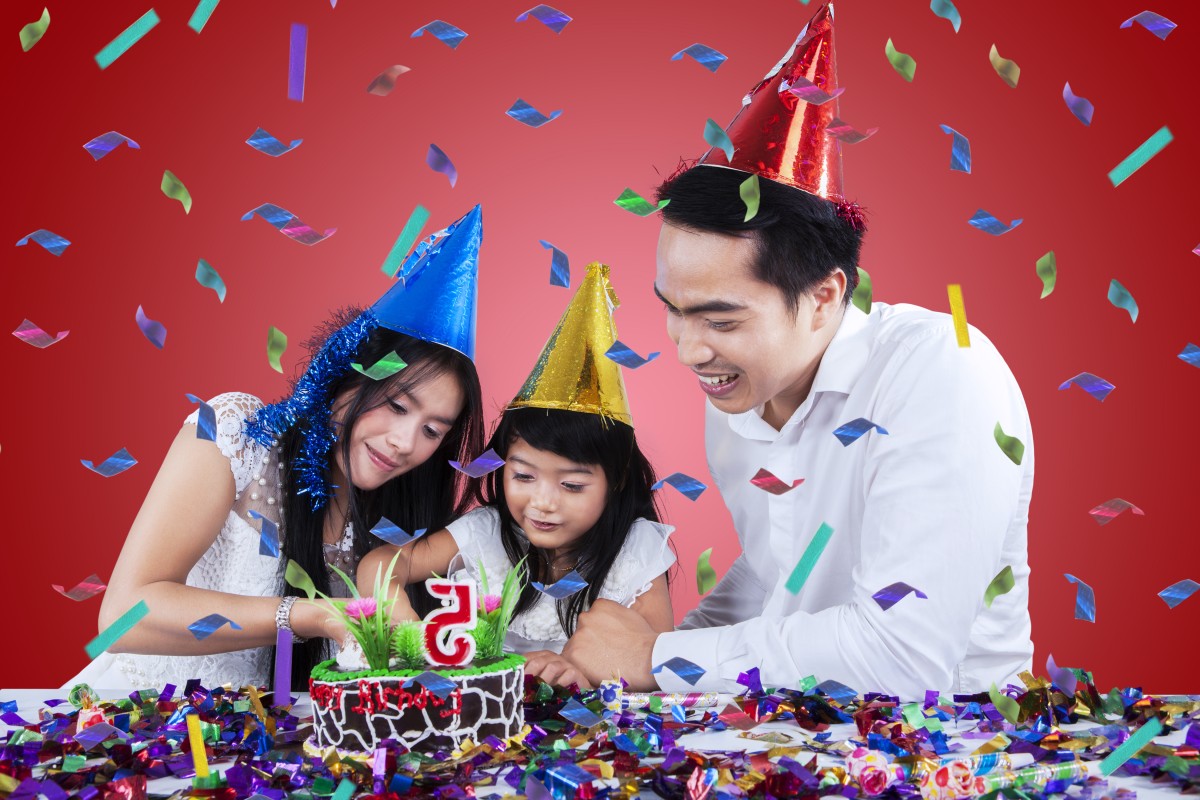Searching how to wish someone a happy birthday in Japanese? So, you've come to the right place! Today we are going to learn how to say “Happy Birthday” in Japanese.
Throughout this article, you will see different ways to wish a happy birthday and learn many Japanese words related to birthdays.
We recommend reading: Omedetou – How to say Happy Birthday in Japanese?
Table of Content
Happy Birthday in Japanese
The most common way to say "happy birthday" in Japanese is otanjobi omedetou :
お誕生日おめでとう!
The word [誕生日] means birthday, or anniversary, composed of the ideograms of [誕] meaning "being born", [生] meaning "life", and [日] which means "day".
The word Omedetou [おめでとう] means congratulations, in Japanese the word happy is not used as in some languages. This is the most common way to say "Happy Birthday" in Japanese.
If you want to know the reason for the [お] before the word Tanjoubi, we recommend reading the following article: Bikago – Por que o "O" e "GO" são utilizados antes de algumas palavras japonesas?

Saying your birthday
If someone asks “Tanjōbi wa nan-nichi desu ka” [誕生日は何日ですか]? He's asking what your birthday is. Now let's see how to correctly answer this question.
You need to put the day of the month after the month itself. If your birthday was March 4th, for example, you would say:
私の誕生日は3月4日です Watashi no tanjoubi wa san gatsu yokka desu
Imagine the thrill of being able to share your special date with friends and family in Japan using the right words. You can also respond directly, avoiding pronouns or just saying the date.
Different Ways to Say "Happy Birthday"
Many sites publish articles with numerous ways to say "Happy Birthday" in Japanese, but this is mostly filler, it's pretty much the same sentence with additions.
As we have just seen, the word tanjoubi [誕生日] is used to refer to a person's birthday. Then we use the word omedetou [おめでとう] which means congratulations.
The other forms we are going to present now are variations that add or take away some of these words, making the sentence more formal or more informal. See some examples:
お誕生日おめでとうございます。 o-tanjoubi omedetou gozaimasu
The addition of the word chamaimasu made the sentence much more formal and polite.
おたおめ Otaome
Otaome is a very short and informal abbreviation, often used by young people or in informal settings such as online text messages on the internet.
〇〇歳のお誕生日おめでとう 〇〇sai no otanjoubi omedetou
In the example above we added the person's age, congratulating them for reaching that age. Age is represented by circles, while the suffix [歳] refers to years of age.

In addition to the word Otanjoubi, we can use an expression derived from the English language:
ハッピーバースデー! happii baasudee!
The form we just saw is derived from the English "Happy Birthday".
What to say after Tanjoubi Omodetou?
After you say "happy birthday", you can use other expressions like:
素敵な一日を〜 sutekina ichinichi o
In the expression above you wished the person to have a wonderful day, or a great day.
素晴らしい1年になりますように subarashii ichinen ni narimasu you ni
In the sentence above, you wished the person a wonderful year.
楽しんでください tanoshinde kudasai
In the sentence above, you are wishing the person to have fun on that date.
あなたの願いが全て叶いますように! Anata no negai ga subete kanaimasuyouni!
May all your wishes come true!
こがからも幸せでいてください Korekaramo shiawase de Itekudasai
please continue to be happy
Birthday Song in Japanese
Each country has its version of the birthday song that usually uses the same rhythm and background sound, the famous Happy Birthday song.
Japanese people often sing the Americanized version and it also has its own Japanese version. The Americanized version is the same as the English version, but sung with a Japanese accent and with the following script and romanization:
ハッピーバースデートゥーユー Happii basudee tuu yuu
The Japanese version has the following lyrics:
嬉しいな今日は。 ureshii na kyou wa. 楽しいな今日は。 tanoshii na kyou wa. 誕生日おめでとう。 tanjoubi omedetou. お歌を歌いましょう。 outa wo utaimashou.
The Japanese version speaks, what a happy day, what a fun day, happy birthday, let's sing together. Basically this is the translation of the Japanese birthday song.
Birthday Vocabulary in Japanese
If you want to say that the word refers to something related to a birthday, just add tanjoubi before it, for example: 誕生日パーティー (birthday party). Of course, it is also common to use Americanized terms like バースデーケーキ (birthday cake).
- 誕生日 (tanjōbi) - birthday.
- 祝う (iwau) - to wish happiness.
- ケーキ (kēki) - cake.
- プレゼント (purezento) - present.
- パーティー (pātī) - party.
- 一歳 (issai) - one year older.
- 祝賀会 (shukugaikai) - party, celebration;
- サプライズ (surpresa) - surprise.
- 年齢 (nenrei) - idade.
- お祝い (oiwai) - celebration.
- カード (kādo) - card.
- ギフト (gifuto) - gift.
- メッセージ (messaaji) - message.
- 祝い事 (iwaigoto) - celebration.
- グッズ (guzzu) - party items.
- お祝い金 (oiwai-kin) - gift money.
- お祝いメール (oiwai-mēru) - celebration email.
- お祝いコメント (oiwai-komento) - celebration comment.
- お祝い言葉 (oiwai-kotoba) - words of celebration.
